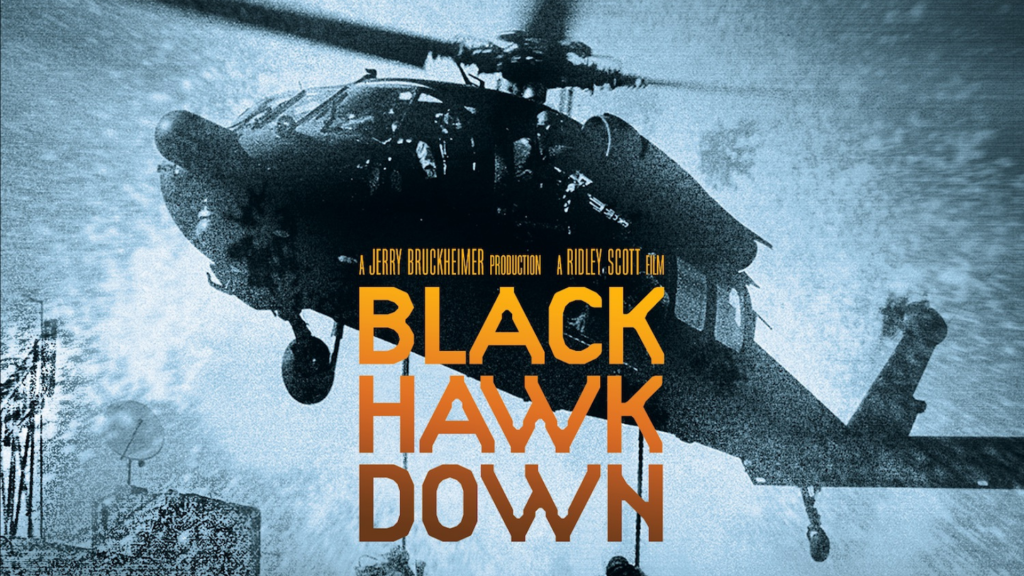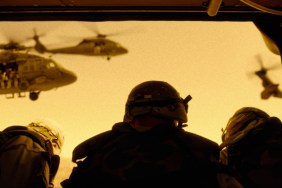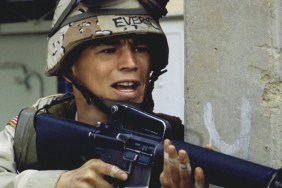Ridley Scott’s Black Hawk Down stands, at twenty years, as a visceral depiction of the brutal minutiae of war, regardless of the criticisms it received or the unintended impact of its timing. Nearly every war film made since has sketched its visual and sonic realities from Scott’s gutting and unapologetic devotion to them.
But was the film a harrowing portrayal of historical heroism, or a shallow, war glorifying, American-aggrandizing action piece, short on humanity? Commentary from release, and in that of later retrospective review, typically adopts one stance or the other.
RELATED: Ridley Scott’s Four Best Films to Rewatch After House of Gucci
Based on a book of the same name by Mark Bowden, Black Hawk Down is the story of how a long-overdue operation, under immense political pressure, became the Battle of Mogadishu. What was supposed to be a 30-minute operation to capture two of Mohamed Farrah Aidid’s high-ranking aides, became an overnight rescue operation to retrieve the pilots and soldiers from two downed Black Hawk helicopters. On the tight streets of Mogadishu, with the Somali militia firmly holding rooftops and blockading the streets, Army rangers either stayed put or returned to what they felt was certain death — all to keep their comrades from falling into the hands of the enemy, dead or alive. By the end of it, 19 American soldiers were killed in action, with varying reports totaling Somali casualties between 300 and 2,000.
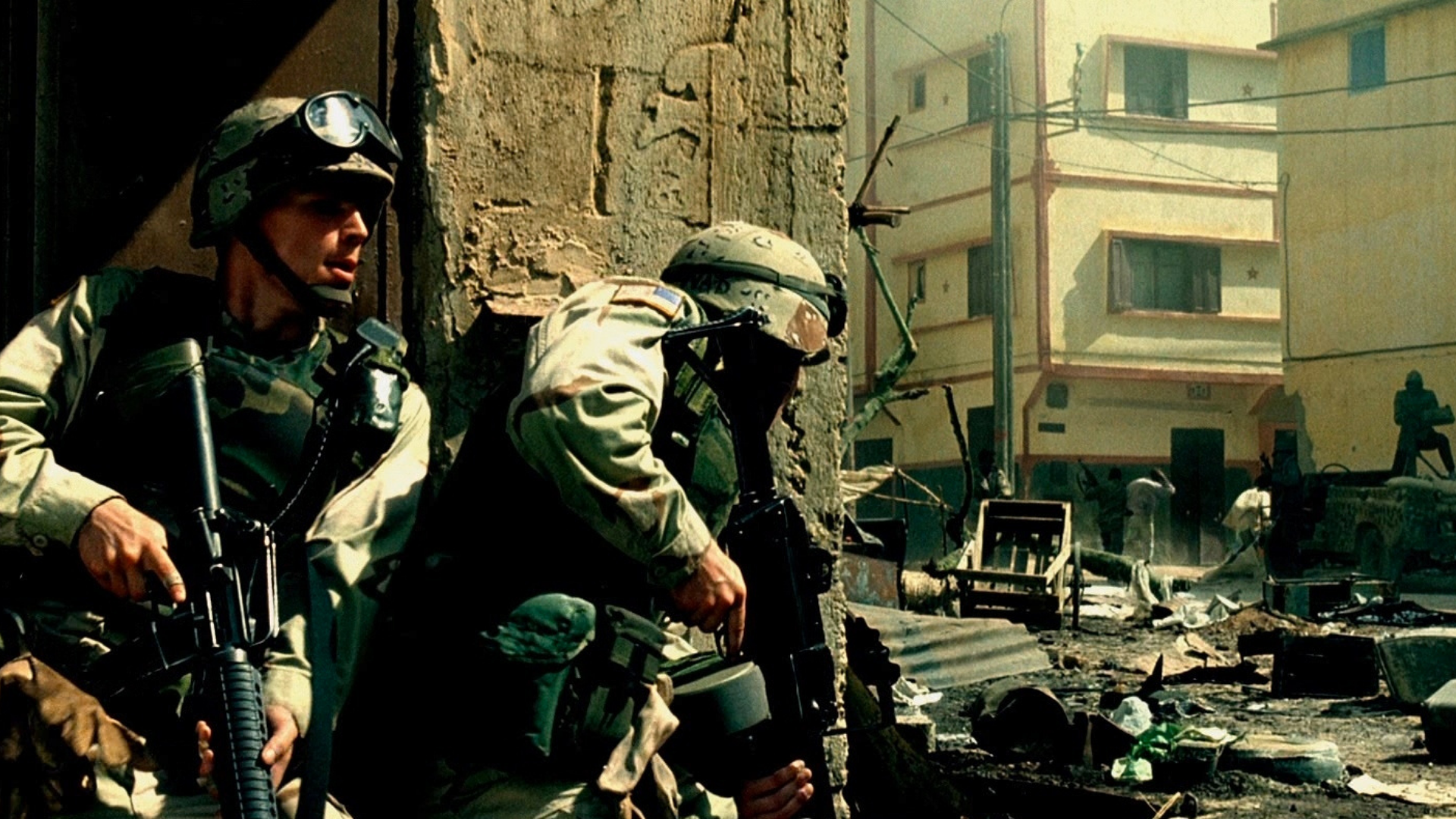
In 2001, Black Hawk Down was gearing up to release during the fall Oscar season, when 9/11 fundamentally and irrevocably altered the landscape of American … everything. From that point forward, no matter what parallels Scott had intended with this film — most obvious being the Vietnam war, with “Voodoo Child” prominently shifting the film’s narrative between acts I and II — the devastating events of 9/11 would influence this film’s reception.
Black Hawk Down, for better or worse, would be tied to larger debates about war, humanitarian response, and racism, regardless of what it was actually about. Critiques ignited, and while that isn’t necessarily a bad thing, it does miss the mark with human intention about as often as it uncovers a vital oversight in storytelling. Some felt that the side of the Somali fighters wasn’t properly depicted; others felt that US soldiers weren’t given meaningful enough characterization. Some thought the film blamed Clinton for applying too much political pressure, resulting in the botched mission; others thought the film didn’t praise his pressure enough, given reported ties between Osama bin Laden and Aidid. Some thought that the use of the word “skinnies” in the film was offensive, but was actually just something the soldiers had picked up from a passed-around copy of the book Starship Troopers. So on, and so forth.
Timing created most of these critiques, though, not the film itself.
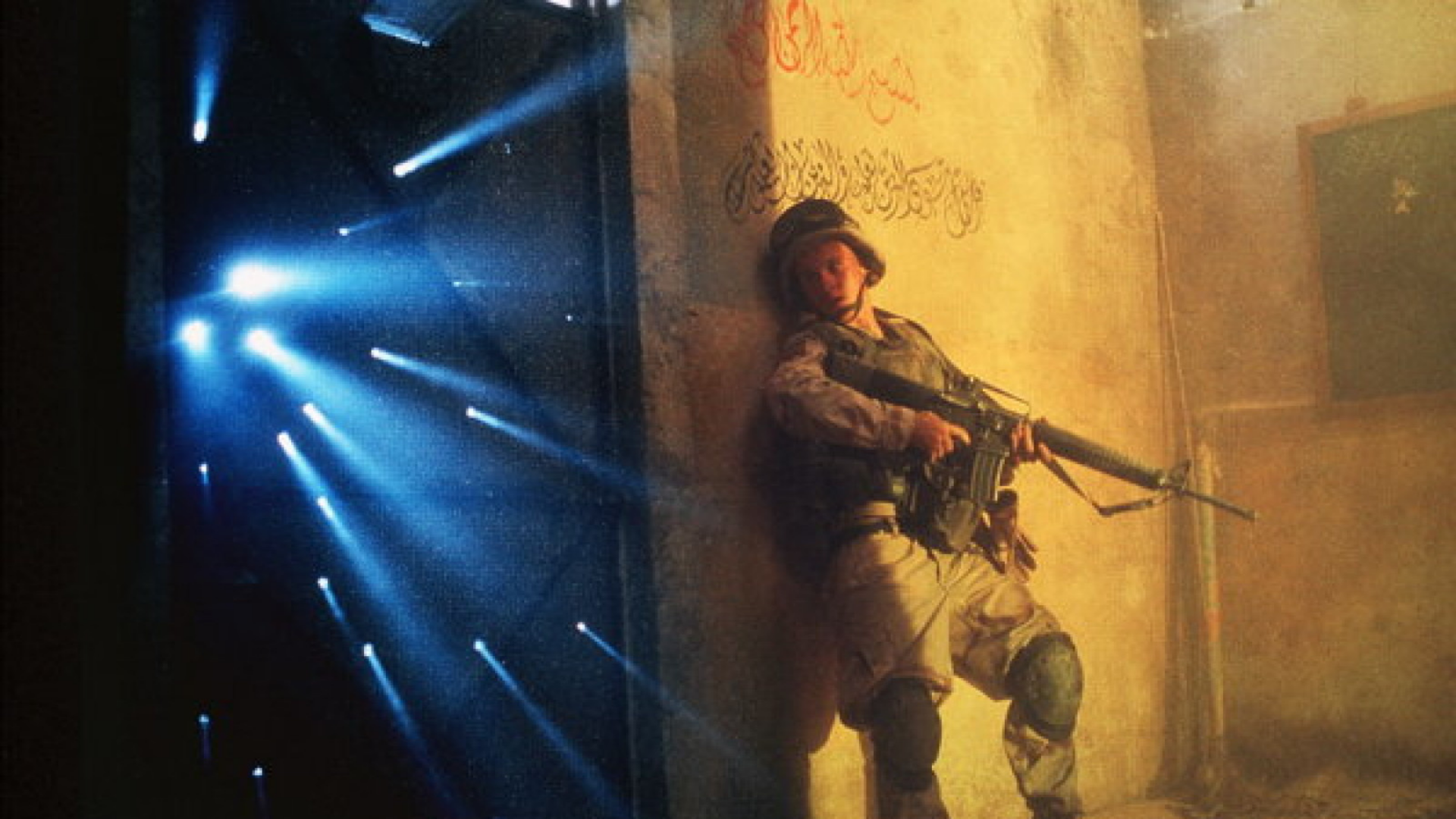
When viewed objectively, Black Hawk Down is a film about the boots on the ground, not the larger social or political agendas that may, or may not, have put them there. On the ground, in the moment, all of that fades and the human being next to you, who has entrusted their six to you, is all that matters. Even one person left behind, in that unspoken bond between soldiers, not only disqualifies victory but has the potential to haunt a veteran of war until their final breath. It’s not an order followed, it’s a vow made between human beings all feeling the same fear.
One of the things to praise about Scott’s film is that it does not shy away from that fear in favor of toxic masculinity — twenty years ago. That turn of phrase wasn’t even coined yet, or part of the social consciousness. It wasn’t done that way for some social agenda. It’s just the truth. They were all terrified. Before they ever stepped foot on a chopper, or in a humvee, they were terrified. War is not glorified within the eyes of these soldiers giving one another death letters for their families or making calls home, knowing it may be their last.
Perhaps, maybe, Jeremy Piven’s Wolcott wasn’t that terrified, but when have you ever seen Jeremy Piven not be exactly the way he was? Inspired casting, really, because combat pilots are exactly the way he portrayed Wolcott. Wild on the stick, calm in crisis … but I digress.
One of the stunning themes in Black Hawk Down is, in fact, a trope — courage in the face of fear. Easy to write off as a trope by critics of film, but when depicting real humans in viscerally violent situations, a trope becomes something more. Something human, something relatable, that presents itself in circumstances where instinct is pure.
Major Jeff Struecker, portrayed in the film by Brian Van Holt, did an hour-long interview with the American Veterans Center in 2019. Step-by-step he recounts the events of October 3, 1993, from his point of view. To refresh your memory, in the film, Struecker is driving the humvee when the soldier shooting the 50 cal on top of it is shot in the forehead, the first KIA of the conflict. As soon as they return to their base, they are immediately told to turn around and go back through the hell they just drove through, to search for survivors of the second Black Hawk crash. One of the most poignant moments of the interview was Struecker’s account of the soldier who approached him shortly after, saying that he couldn’t go back out there.
“He knew what I knew, ‘we’re all gonna die,'” Struecker explains. “Frankly, he had the courage to say what everyone around us was thinking, but nobody wanted to say it to each other. Instead of yelling at him, or trying to insult him, I just patiently, calmly said, ‘Look man, I’m scared too, we all are. I don’t want you to think about yourself as a coward, just because you’re afraid. In fact, in combat, if you don’t have fear, there’s probably something wrong with you. The real difference between a hero and a coward, in battle, is not fear, it’s what you do when you are afraid that makes a difference.'”
From there, as depicted in the film, the soldier made a last-minute decision to return to the battle, jumping on one of the last humvees. Struecker states that the soldier was “absolutely convinced that he was going to die, but was willing to give his life for the guys still in the city streets to have a chance.”
“I’ve never been more proud of a soldier in all my life,” he adds.
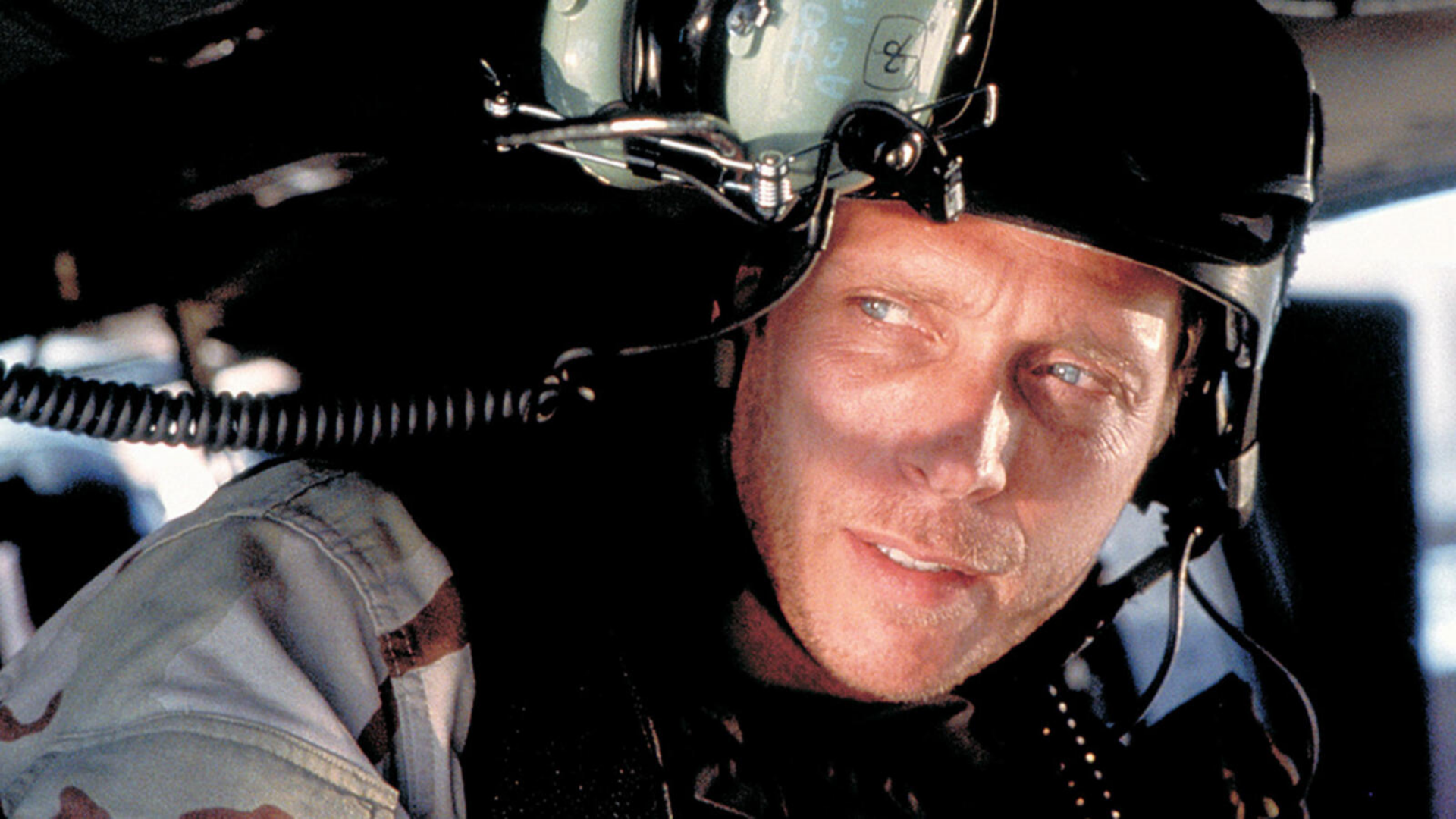
Directionally, Scott attempts to do as much justice to the emotional realities of these events and humans, as possible. It’s true that characters weren’t given much developmental real estate when compared to a film of the same era, with a much smaller cast, telling a far less frenetic and traumatic story. But, perhaps, audiences and critics at the time of its telling needed things spoon-fed a bit more than they do twenty years on. Regardless, Scott’s decision to keep everyone on equal footing, with no true primary characters, does succeed in making every life valuable, with moments of character emphasis placed only where they truly occurred.
For those who felt confused, isolated, or unsure of what was happening, or who it was happening to, during the film — well, what do you imagine it was like on the streets of Mogadishu? That was more than a creative decision, it was a realistic one. Scott isn’t one to dampen crucial realities for the sake of audience retention, nor should he.
Instead, he wielded 11 cameras with cinematographer Sławomir Idziak to create immediacy and immersion, sparingly made use of visual effects, and let the sound design and soundtrack transport you to a place way outside of your comfort zone. With continuous battle, cumulative amounts of sweat, dust, and blood, ear-drum-splitting gunfire, and a disorienting sense of geography, Scott gifts his audience an opportunity to understand how mere hours of war feel like both an eternity and an instant.
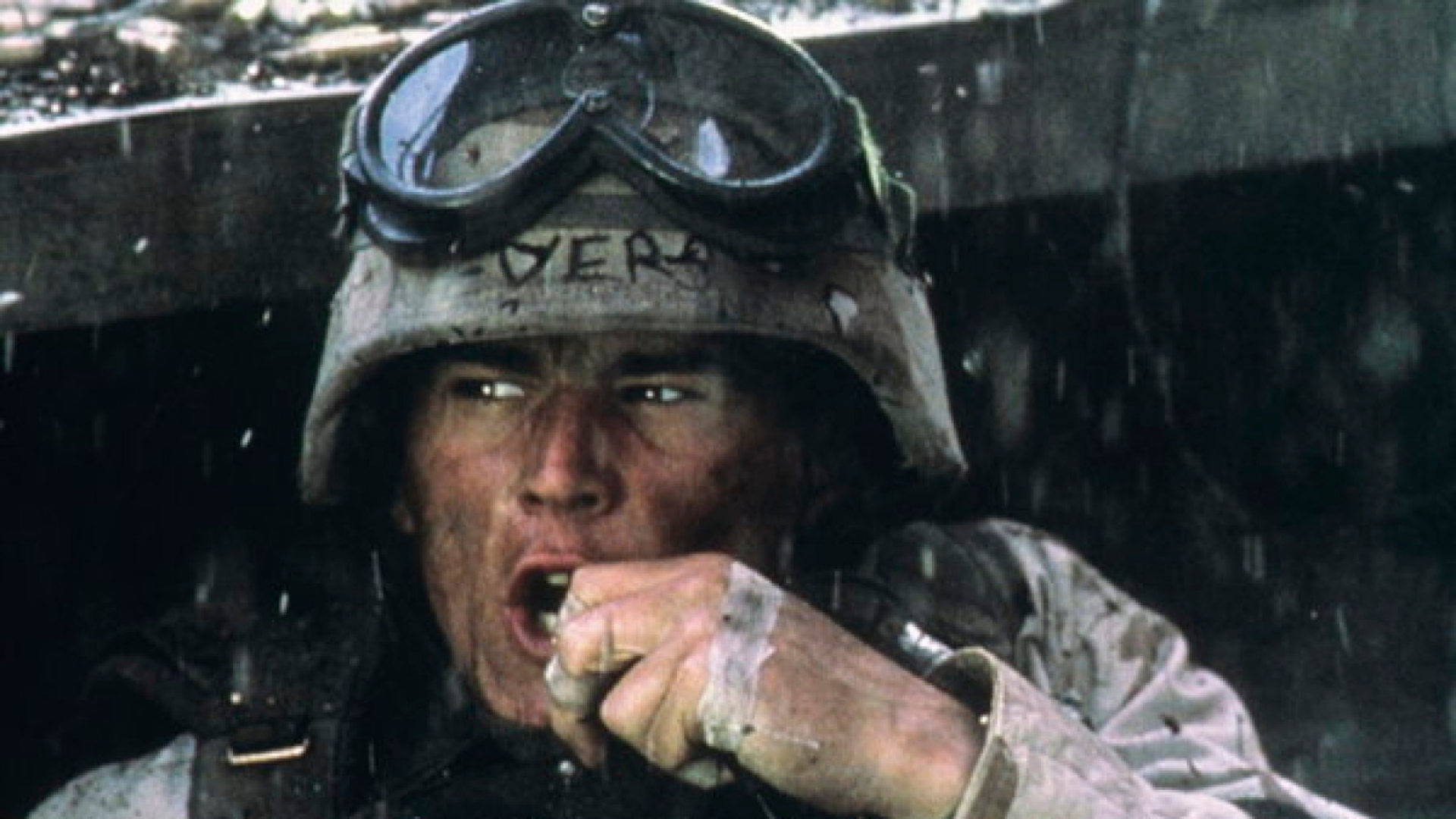
Aside from smaller criticisms that do hold merit, such as over-expository opening titles and plenty of dialogue that feels redundant, over-explanatory, and largely studio-influenced, Black Hawn Down achieves what it set out to do. But another criticism begs the question, does it leave the Somali people out in the cold, in terms of how they’re presented?
Overall, the film isn’t attempting to be a documentary-style narrative that presents the issues of the conflict from all sides. It’s the recounting of a single mission from the point of view of the United States soldiers involved, who received tremendous politically-charged criticism for going back in to save downed comrades. What the day meant to them, how it happened, why they went back in after the Black Hawks fell, what they experienced, what was lost, and what they felt their presence inspired amongst the Somali people, is the entirety of the film’s focus. To inject anything else into it would only distract from the intention and intensity of that story, and we would see a different set of criticisms, probably along the lines of “this film doesn’t know which story it’s trying to tell.”
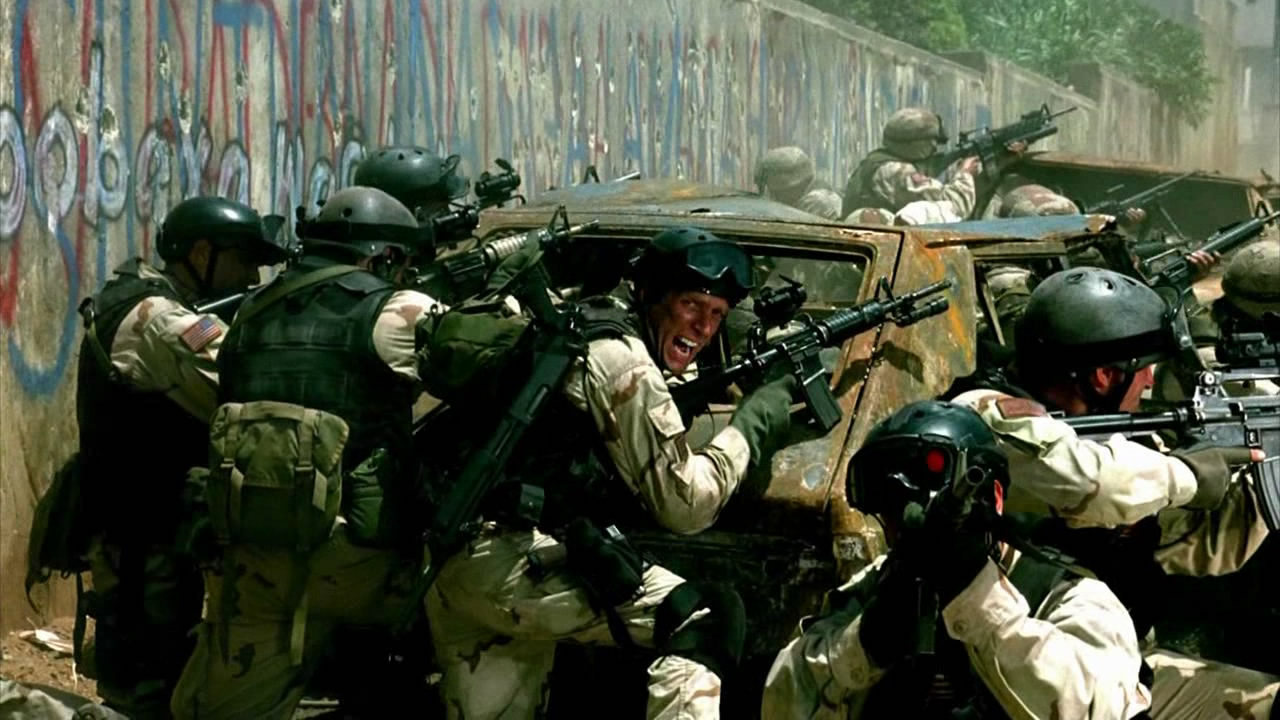
Despite these criticisms, however, Black Hawk Down has stood the test of time with audiences, and is regularly praised as one of the greatest films to depict the realities of modern warfare. It was nominated for four Academy Awards: Best Director, Best Cinematography, Best Sound, and Best Film Editing — of which, it won the latter two. While none of the extensive cast was nominated, that isn’t terribly surprising, given that the film wasn’t made to showcase individuals.
Be that as it may, nearly the entire cast went on to highly esteemed careers, if they didn’t have one already. Sam Shepard, Jeremy Piven, and Jason Isaacs were all well-known; Tom Sizemore has been in more films than just about any actor alive (IMDb says he currently has about twenty films in post-production); William Fichtner was (and is) one of the most beloved character actors of all time; Josh Hartnett was fresh off of the highly acclaimed Pearl Harbor; Ewan McGregor was becoming a household name; and who could forget Richard Tyson from Kindergarten Cop, or Tom Guiry from The Sandlot?! But actors we routinely see today, such as Tom Hardy, Orlando Bloom, Nikolaj Coster-Waldau, Eric Bana, and Ewen Bremner, were all relatively unknown, at the time. They all found their career strides in the years following Black Hawk Down, despite criticisms regarding character development.
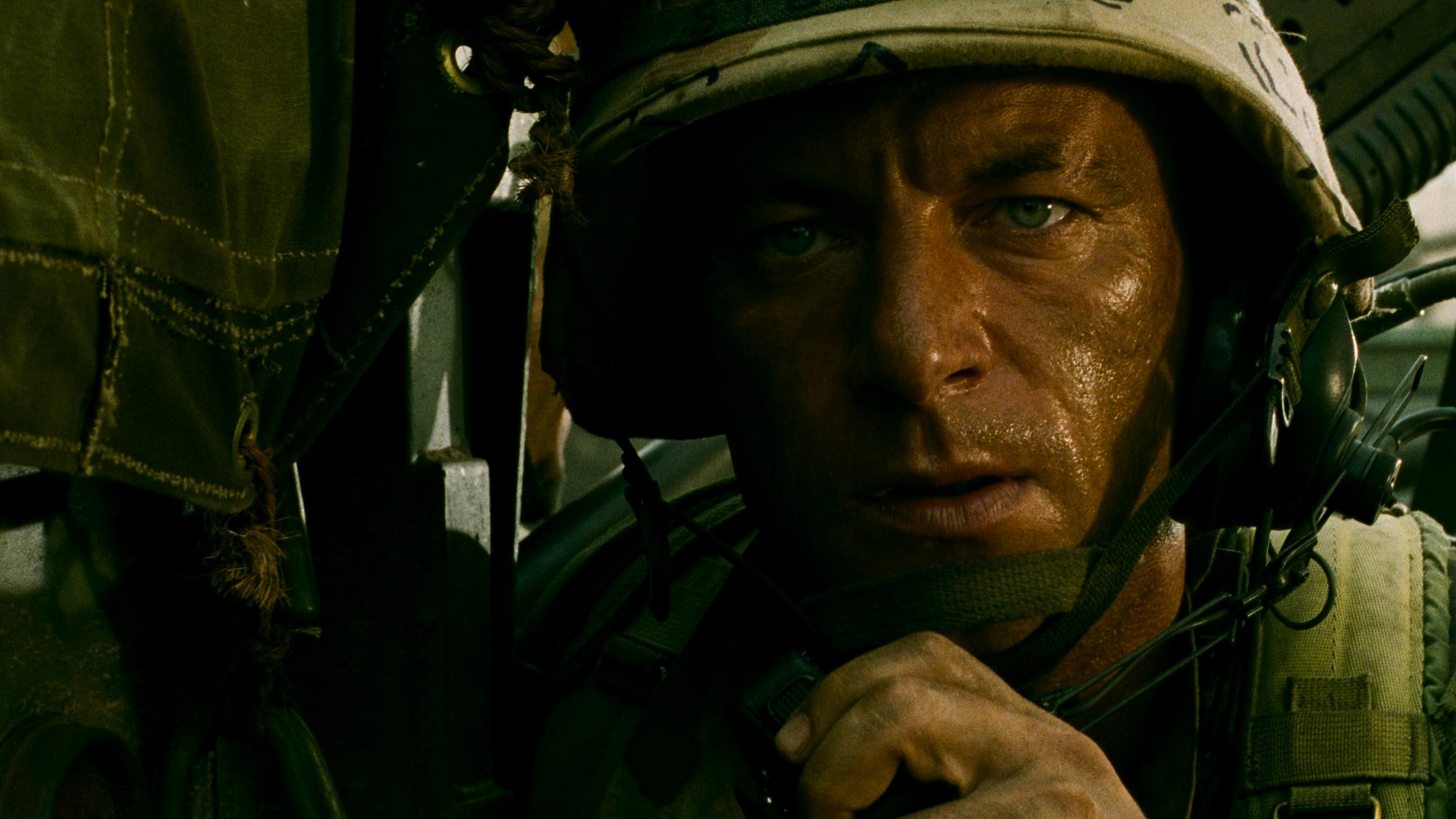
With all of this in mind, I circle back to the initial question — was the film a harrowing portrayal of historical heroism, or a shallow, pro-war, American-aggrandizing action piece, short on humanity?
Both takes misconstrue the film’s intentions.
Aside from the cliched idealism of heroism being shunned within the dialogue of the film itself (albeit a bit tritely), I would wager that not a single soldier who went through the events of this day considers themselves a hero for it. Hero is a moniker, more than anything, and rarely reflects the complexity of actual human beings who are firmly lodged in the grey, by nature. These soldiers chose to stand for something, to live by a code they believed in, and to look out for one another while doing it. That is just the kind of humans they chose to be, at that time. Choice does, however, take courage.
RELATED: Tom Hardy & Channing Tatum to Lead Afghanistan Evacuation Pic From Universal Pictures
As for being shallow, pro-war, or American-aggrandizing? Shallow doesn’t stick unless you’re void of empathy; nothing within this film casts warfare, or even America, in a positive light, which I would think would be obvious; and Ridley Scott is English, as was nearly half of the cast.
Out of all the films out there that get a bit heavy-handed with their messaging, Black Hawk Down is one of the most charged and the least-deserving. It puts its story first, it does so with stunning and visceral effectiveness that has inspired countless other beloved films, and it tells it like it is, without manipulation.
But again, timing is everything. It’s difficult to fault some of these criticisms, born of a truly turbulent and confusing time, where so much was being questioned — and rightly so. We’ve certainly been experiencing that, yet again, in recent years, and I’m certain that twenty years from now we’ll be analyzing the films of this time with a similar perspective.
